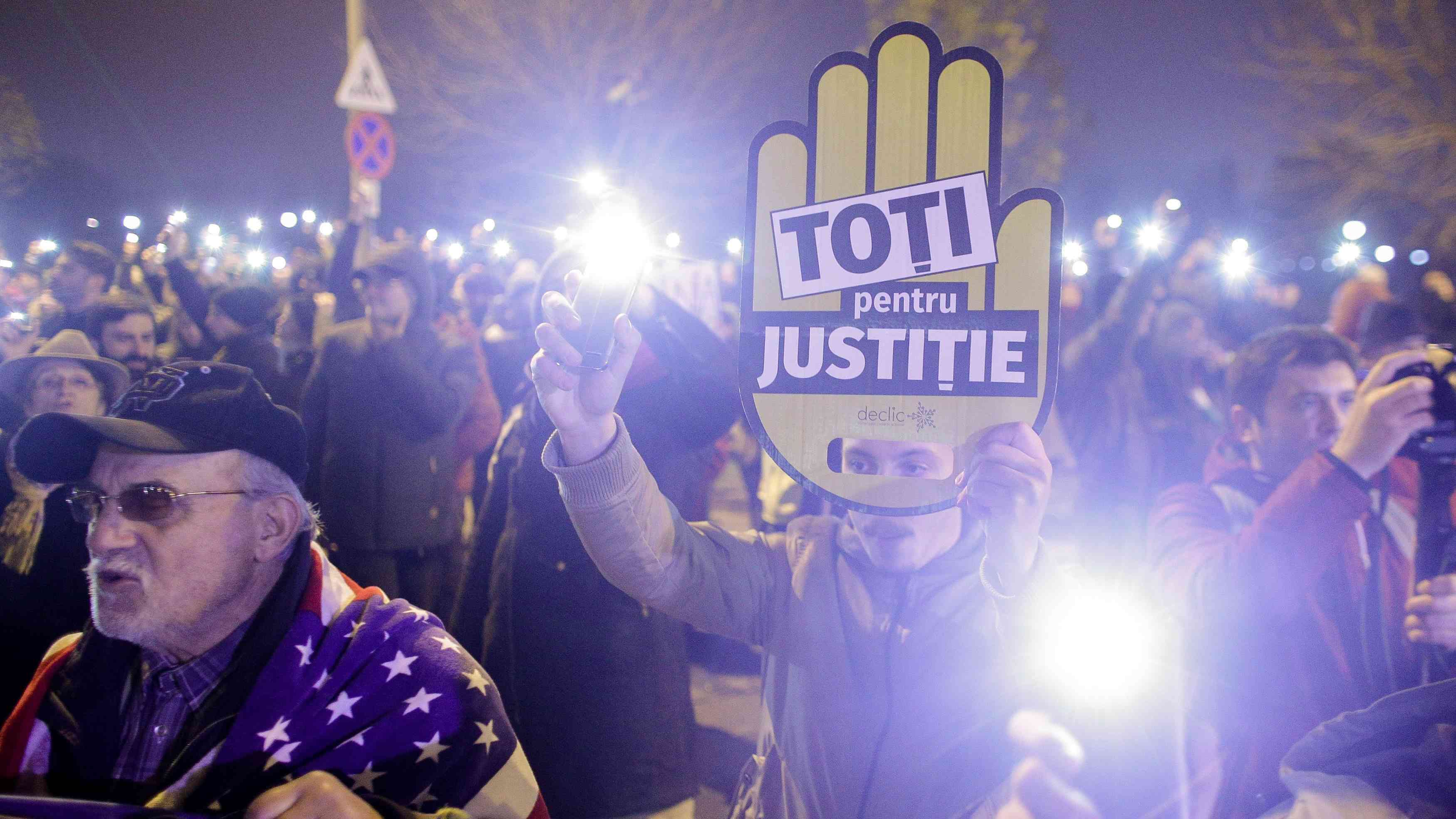
World
10:05, 27-Nov-2017
Tens of thousands protest attempt to overhaul Romanian judiciary
CGTN

Some 50,000 people marched Sunday in Romania to protest a plan that critics, including the EU, say will place the justice system under political control and soften the country’s anti-corruption drive.
Estimates of the numbers of demonstrators in the capital, Bucharest, varied between 15,000 and 30,000. Up to 20,000 people took part in protests in dozens of other cities.
"Thieves, Thieves," the protesters shouted in front of government headquarters in Bucharest. "We want justice, not corruption."
A joint statement by around 40 civil society groups and two trade union federations who called the protests said Romania has been "taken over by a political mafia."
They want the withdrawal of the proposed legislation that would overhaul Romania's justice system and reduce the powers of the respected anti-corruption directorate, the DNA.
Critics say the changes would dent progress in tackling graft, which Brussels has long complained about in the 10 years since Romania joined the European Union.
"Laws are being drawn up that go against Romania's interests just in order to save a few people under investigation," pensioner Ion Nica told AFP at the protests in Bucharest.
A special parliamentary commission started debating the bill last week, with the ruling Social Democrats (PSD) aiming to have it approved by the end of the year.
The PSD, which was returned to power last December, already had to backtrack on altering anti-corruption laws in February after they triggered the biggest street protests in Romania since the 1989 anti-communist revolution.
PSD head Liviu Dragnea, meanwhile, is barred from office due to an electoral fraud conviction and is on trial for alleged abuse of power. Last week prosecutors seized his assets in a probe into alleged misappropriation of public funds.
Romanian prosecutors have investigated hundreds of public officials, including former prime ministers, in an anti-corruption drive over the past decade.
In a report published on November 15, the European Commission said that justice reform has stagnated in Romania this year and challenges to judicial independence remain a persistent source of concern.
Source(s): AFP
,Reuters

SITEMAP
Copyright © 2018 CGTN. Beijing ICP prepared NO.16065310-3
Copyright © 2018 CGTN. Beijing ICP prepared NO.16065310-3